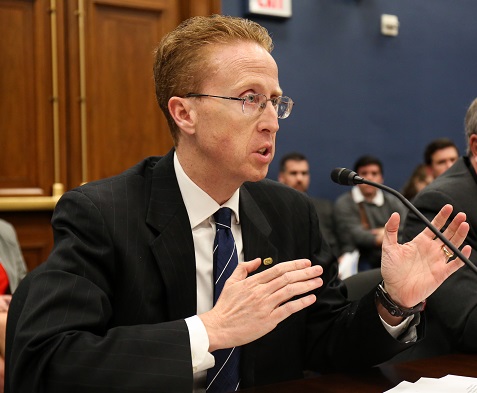AICPA Highlights Tax Provisions that Stifle Entrepreneurship in Testimony at House Small Business Committee Hearing
February 23, 2017

Troy K. Lewis, CPA, CGMA, immediate past chair of the American Institute of CPAs’ (AICPA) Tax Executive Committee, testified February 15 at a hearing before the House Small Business Committee about how to promote entrepreneurship by addressing barriers in the tax code.
Lewis focused on several tax issues being considered as part of the tax reform debate that directly impact small businesses and their owners.
“First, it is important to recognize that tax relief should not mean a rate reduction for C corporations only,” Lewis testified. “Congress should continue to encourage, or at least not discourage, the
formation of sole proprietorships and pass-through entities. If Congress decides to lower corporate income tax rates, small businesses should receive a lower tax rate as well,” he told committee members.
Lewis said the AICPA recognizes that providing a reduced rate for income of small businesses will place additional pressure on the need to distinguish between profits of the business and compensation of the owner-operators. “We should continue to use traditional definitions of ‘reasonable compensation’ and judicial guidance for this purpose,” he stated. He recommended that to minimize controversy, the IRS should take additional steps to improve compliance in this area.
Partnerships and sole proprietorships should be required to charge reasonable compensation, Lewis testified. However, partners and proprietors should not be treated as “employees,” but rather as owners whose labor is also subject to withholding. Including partners and proprietors in well-defined payroll rules should enhance enforcement in this area, he said.
Lewis testified that the ability to deduct interest expense is an important benefit for small businesses. He pointed out that owners borrow to fund operations, working capital needs, equipment acquisition, and even to build credit for future loans. “We should not take away or limit this critical deduction for many small businesses who, with little or no access to equity capital, are forced to rely on debt financing,” he stated.
Lewis also urged the committee to oppose any new limitations on the use of the cash method of accounting. “The cash method is simpler in application, has fewer compliance costs, and does not require taxpayers to pay tax before receiving the income, which is why entrepreneurs often choose this method. Forcing them to switch to the accrual method, upon reaching a gross receipts threshold, would unnecessarily discourage business growth and impose financial hardship on cash-strapped businesses,” he told the panel. Lewis also expressed appreciation that the House Republicans’ tax reform “blueprint” does not restrict the use of the cash method.
